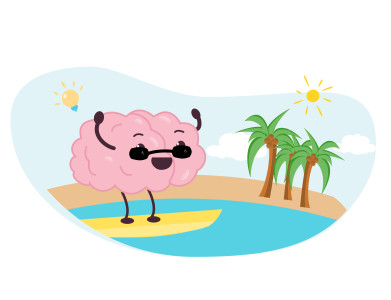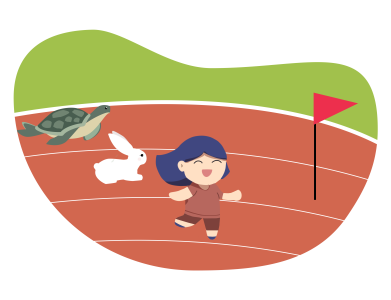This article will explore the best self-esteem activities for your child or teen, as well as the causes of their low self-esteem!
Being a child or teen in today’s highly competitive environment is challenging.
Children and teenagers may worry that they won’t be able to make it through life because of things like peer pressure, physical changes, intense competition, puberty, high parental expectations, and other responsibilities.
As a parent, you want to help your child through the inevitable struggles that come with entering adulthood and the experiences that come with them.
What is self-esteem?
A person’s self-esteem is a reflection of their own assessment of their own qualities and capabilities. Negative self-talk about our abilities and values results from low self-esteem.
Causes of Low Self-Esteem in Children and Teenagers
Your teen’s poor self-esteem could be the result of a number of factors. Some of the reasons are:
- Disruptions in family life
- Approach to Parenting
- Problems with schoolwork
- Tests of strength
- Social isolation and bullying in school
- Problems fitting in socially
- Negative emotional or social treatment
Self-Esteem Activities for Children

You may encourage your child to work on their own self-esteem and confidence by providing them with stimulating activities, in addition to your support and assistance. These are options you could explore.
-
A letter of encouragement
Write your child or teen some letters of encouragement to strengthen your relationship with them and make them feel better about themselves. There may be other family members involved.
How to Play: Make a chart and have each family member write down two positive attributes about the child or teen, as well as two suggestions for how to boost their spirits. The child or teen can then hang the chart in his or her room.
The teen will feel better after reading the letter since it will remind them that they are not alone and give them hope that there are people in their life they can count on. The teen’s spirits will improve as a result of the chart’s positive reinforcements.
-
Appreciation of self-image and the mirror
Some kids and teens suffer from body shame, and your kid could be one of them.
Help them feel better about themselves by teaching them to accept and appreciate their bodies, no matter what.
You can give your teen the assignment of looking at themselves in the mirror and listing three positive qualities about themselves. Performing this action frequently will yield the best outcomes.
The benefit is that your child will develop a healthy sense of self-love and self-worth. As people grow to accept themselves, they will eventually be able to let go of negative feelings about their appearance.
-
Prizes and Award Certificates
Encourage your child to look ahead to their future successes and reflect on their past ones by doing this.
In order to make a certificate of accomplishments, divide the chart into four sections: early life (ages 4-6), middle life (ages 7–10), recent accomplishments, and goals for the next five years. Encourage your child to fill in the chart with colors and then display it in their room. All of their accomplishments can be recorded on the chart.
The chart helps them see that they have already accomplished a lot in their lives and that they have the potential to accomplish even more in the future. Their confidence is boosted by participating in this exercise.
-
Confidence mind mapping
This activity is great for encouraging creativity and building self-esteem in kids and teens who enjoy painting.
First, have your teen write a brief summary of the “Why I’m Great?” mind map. Then, have him or her draw numerous arms out from the center and label each with a reason why he or she is a great kid, friend, and person.
Making note of their strengths with this self-confidence mind mapping activity will help them recognize that they are unique and great people.
-
A day of affirmation and optimism
The confidence and friendliness of your child will benefit from a weekly day of positive encouragement at home. They may have a significant boost in confidence as a result of this.
Tell your child to think of and say nice things about themselves on that day. Your child is developing good habits, and you and your family need to remind them of this. For instance, if your child is confident in his or her ability to do home chores, remind them of this fact and express your delight in them. Be reasonable; don’t credit the teen with a skill for which they lack.
When your child sees that other people value their skills, it will help them feel good about themselves.
-
Journal for Positive Goals
Your child can use this activity to think about what they want to accomplish and how they can achieve it. Your child has the option of doing this activity on their own or with you.
This activity contains two sections, which are “objective planning” and “barriers and approaches.” Part one involves having your kid or teen write down some goals they have for the next few days, the next month, the next year, and the next five years. Ask them to write down their plans for achieving their goals and any difficulties they anticipate encountering in the second section.
Goal-setting and the development of strategies for achieving those goals will provide your child with a sense of direction and purpose. They’ll come out of this activity feeling more optimistic and less worried about the risks involved.
-
The flip record of errors
With this activity as a guide, your child or teen will be able to draw wisdom and strength from past failures and go forward with confidence. It will assist them in “transforming” their setbacks into accomplishments.
Specifically, instruct him or her to make a list of any major failures or mistakes from the past. Get them to write down what they think might have gone wrong and why they think it did. In the next section, you will try to get them to think of ways to avoid problems in the future.
This activity helps him or her understand that setbacks are part of the learning process and that they need not hold him or her back from future successes. This prepares students to deal with the consequences of their mistakes.
-
The Sentence Completion Worksheet
Your child’s or teenager’s self-esteem can be quickly and easily boosted by having them participate in this activity and then talking about what they talked about. The purpose of the exercise is to help people reflect on and understand their feelings.
Create questions like “I feel my future is,” “something that concerns me the most is,” “if I could,” “I love when,” “I have issues when,” and “Today will be” to guide the process. Tell your teen to respond at the end of each day. After two weeks, see if your answers are similar to their pattern.
When combined with other beneficial routines, the positive effects of this action are amplified. In this activity, you’ll learn what it takes to live a joyful lifestyle.
-
Positive word of the day
A positive word a day might do wonders for your child’s attitude. The passage of time will teach them to look on the bright side of things, no matter how bad things get.
To facilitate this, instruct your child to identify a positive term for each nice deed they perform daily. They can write “helpful” if they do anything like wash the dishes.
A reassuring phrase can change their perspective and make them feel better about things.
-
Motivational quotes
In addition to being a fun way to strengthen family ties, challenges based on inspirational quotations may be a wonderful way to increase morale and confidence in individuals of all ages.
The goal of this challenge is to inspire your teen to do better in their daily lives, so each day you should have them find or come up with one or two motivational quotes to use as inspiration. It’s also possible to have a conversation with them about the quotes to help them understand what they represent. Quotations like these can be humorous, insightful, and sarcastic.
Having these talks with your teen will help them focus on the positive side of things and motivate them to take action every day.
-
Physical Activities
Engaging in physical activities with your child is another great way to help them feel better about themselves. As a result of adopting an active lifestyle, the teen gains self-esteem and improves his health.
Encourage your child to participate in sports or other forms of physical activity that pique their interest. They may spend up to one hour per day on it.
Being active can teach your teen the value of teamwork and that it’s okay to lose sometimes. With time, your child will develop self-assurance. Remember that reassuring words and actions of encouragement might help them feel assured of your unwavering support.
-
Explore new opportunities
If you want your child to feel more secure in themselves, try to inspire them to broaden their horizons, explore their interests, and take on new challenges. Despite this, some young individuals are afraid to take chances for fear of embarrassment.
Your teen can accomplish this by helping others, getting a part-time job, taking up a new hobby, or joining a group.
Having a sense of accomplishment and learning new abilities is a win-win for your teenager’s self-esteem and development.
-
Self-talk
Your internal monologue has an impact on our perspectives. There is a direct correlation between your teenager’s perception that others have negative thoughts about them and their own internalization of such thoughts.
Instructions: Have your child engage in 10 minutes of out-loud self-talk. Help them recognize when they are thinking something that isn’t true or that is negatively impacting their confidence by being observant.
By practicing positive self-talk, you can assist your child in replacing negative, illogical thoughts with positive, rational ones.
-
Applaud the steps taken and explain how they led to the desired result.
It’s possible for parents to go too far when celebrating their child’s achievement. Your teen may only see the value in these activities if they lead to success, as they have a direct relationship to their sense of worth.
Asserting to your child that they are valuable regardless of their success or failure is an important part of parenting.
Praising your kid for their accomplishments and highlighting their own personal efforts will do wonders for their self-esteem.
In conclusion
The journey to a happy life filled with meaningful connections begins with awareness. Your self-esteem influences every aspect of your life.
If you or someone you know is struggling with a low sense of self-worth, keep in mind that prioritizing your own happiness is not a sign of conceit or selfishness. Instead, it’s crucial for both maintaining good mental health and having a real impact on the world. You could even argue that self-esteem is the emotional armor that protects us from the ups and downs of life.







